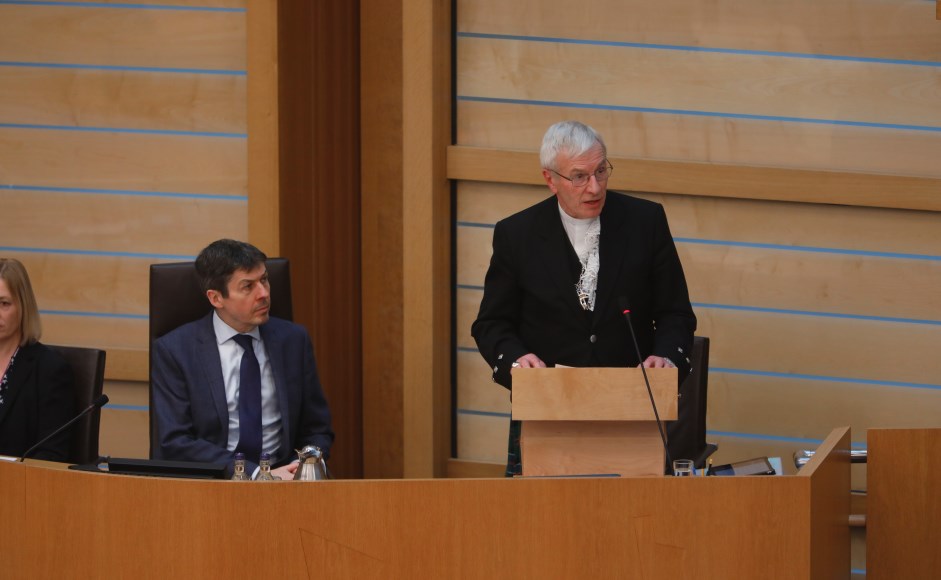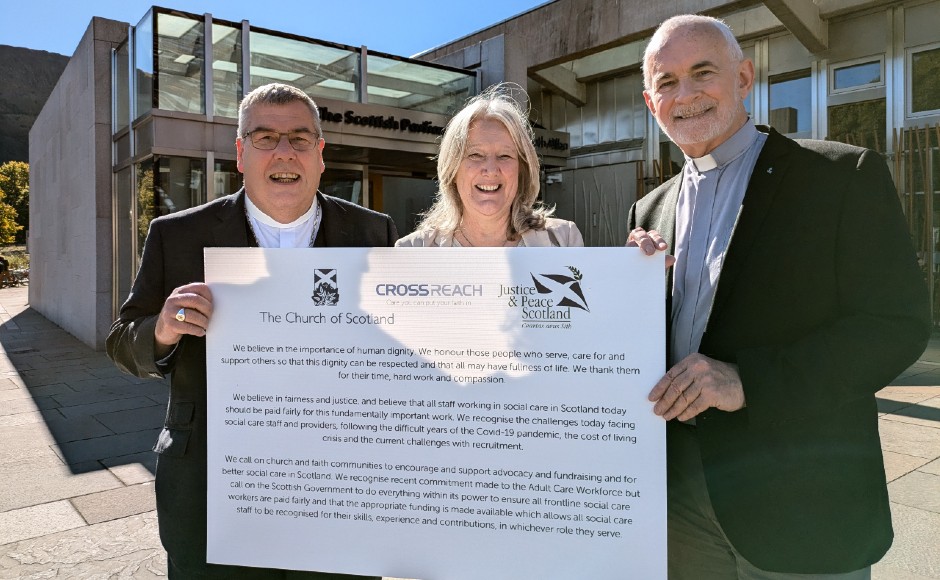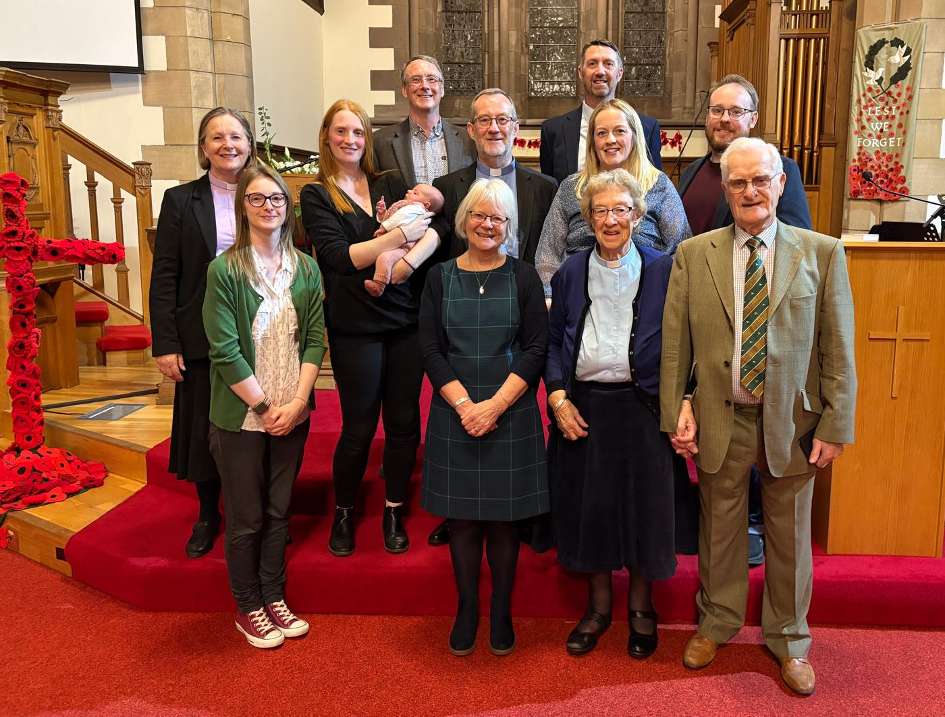Moderator - the Church must engage with the world at every level
Published on 25 February 2020
The Church of Scotland must engage with the world at every level, the Moderator of the General Assembly has told MSPs.
Rt Rev Colin Sinclair said there were no "no-go areas" for Christians and listening and learning from people from all walks of life was essential.
"Followers of faith care about the impact our changing world makes, especially on the vulnerable and voiceless and on future generations," he said.

Mr Sinclair made the remarks in a Time for Reflection address as part of the Moderator's annual visit to the Scottish Parliament.
Earlier today, he held talks with Scottish Labour leader Richard Leonard and Scottish Conservative leader Jackson Carlaw.
He will meet with First Minister and SNP leader Nicola Sturgeon, Scottish Liberal Democrat leader Willie Rennie, and Alison Johnstone, co-leader of the Scottish Greens at Holyrood, tomorrow.
Issues raised by the Moderator include the UN Climate Change conference scheduled for Glasgow in November.
Low carbon economy priority
The Church believes COP26 is once-in-a-lifetime opportunity to promote awareness and action to move towards a low carbon economy – an urgent priority.
Officials and members are ready to help make the COP a huge success in partnership with the World Council of Churches and others.
Mr Sinclair also raised the issue of financial independence for women who separate from their partners and are in danger of being left destitute.
The Church is keen that the Scottish Government supports calls for a system of split payments for recipients of Universal Credit – a benefit reserved to Westminster.
Mr Sinclair also raised concerns about the future of support services run by the Church's social care arm, CrossReach, to help drug users to recover and live free from substance abuse.
Funding for Residential Abstinence Recovery Service (CRARS) in Glasgow has been cut.
Mr Sinclair focused on the relationship between science and religion in his Time for Reflection address.
He said: "Over the last 50 years the Church of Scotland has sought to be at the cutting edge through its Society, Religion and Technology project.
"Back in 1969, the year of the first moon landing, it was clear that change was here to stay and that technological change would reshape our world and the boundaries of human experience.
"The Church, far from retreating, chose to address issues as they arose while anticipating the future.
"The SRT project brought together people from the worlds of theology, ethics and technology to help appreciate the complexity of the issues, the key questions and the possible unintended consequences."
Must engage at every level
Mr Sinclair said SRT representatives attended the first UN Conference on the environment in 1972, long before climate change dominated the headlines.
"It has wrestled with the impact of North Sea oil discoveries, nuclear power and the quest for greener, more sustainable forms of life," he added.
"From genetic engineering (Dolly the sheep) to global warming, from test tube babies to end of life care, and taking in human cloning on the way, it has sought to present a Christian voice.
"If the Christian faith means anything, then there are no 'no-go areas'.
"The Church must engage with the world at every level.
"Listening and learning with others from every walk of life, and facilitating the meeting of people with expertise from different disciplines is central."


